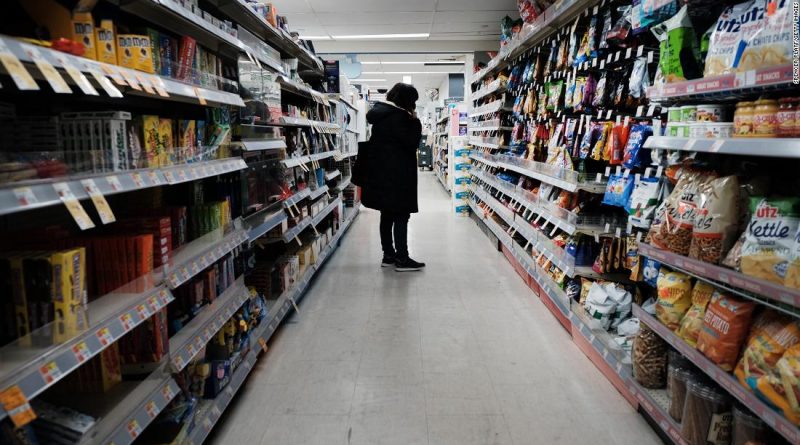Deutsche Bank is the first big bank to forecast a US recession
“We no longer see the Fed achieving a soft landing. Instead, we anticipate that a more aggressive tightening of monetary policy will push the economy into a recession,” Deutsche Bank economists led by Matthew Luzzetti wrote in the report.
Inflationary pressures have broadened out, raising concern that the Fed will have to rapidly raise interest rates to get prices under control. Deutsche Bank pointed to how energy and food commodity prices have spiked since Russia invaded Ukraine.
“It is now clear that price stability…is likely to only be achieved through a restrictive monetary policy stance that meaningfully dents demand,” the Deutsche Bank economists wrote.
In other words, the Fed can’t just tap the brakes on the economy. It needs to really slow the economy down.
‘Mild’ recession and 5% unemployment
Although Deutsche Bank cautioned there is “considerable uncertainty” around the exact timing and size of the downturn, it’s now calling for the US economy to shrink during the final quarter of next year and the first quarter of 2024, “consistent with a recession during that time.”
The good news is Deutsche Bank is not forecasting a deep and painful recession like the past two downturns.
This coming recession would allow inflation to get back towards the Fed’s target by the end of 2024, Deutsche Bank said.
“With the unemployment rate receding only slowly following the peak, inflation should continue to moderate, falling to the Fed’s 2% objective in 2025,” Deutsche Bank said.
Dimon sees a slowdown that ‘could easily get worse’
Others have recently warned of a growing probability of a recession, though they have mostly stopped short of predicting an outright downturn.
Fed Chairman Jerome Powell, on the other hand, pointed out in a speech last month that there have been instances in the past where the Fed was able to achieve a soft landing: Fighting inflation by raising rates without causing a recession. Powell pointed to 1965, 1984 and 1994 as examples.
However, the Fed chief also conceded there is no guarantee it will be able to pull off that feat this time.
“No one expects that bringing about a soft landing will be straightforward in the current context,” Powell said, “very little is straightforward in the current context.”




